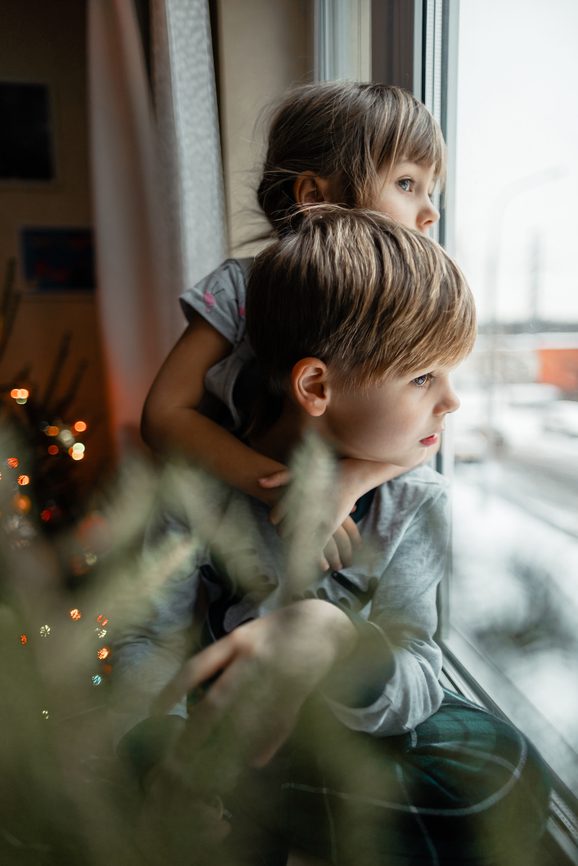At this time of year, my inbox seems to be flooded with emails from parents seeking advice and support; parents who know what their kids need, but are struggling to reconcile their instincts with cultural expectations.
Why? Because parenting babies and little kids is complicated enough at the best of times. We carefully juggle our daily rhythms. We make decisions that may go against the mainstream. And we tactfully prioritise our children’s needs over adult wants.
As conscious parents, we know our children intimately; we know that if our two-year-old misses his midday nap, he won’t make it beyond 6pm without a monumental meltdown. We know that receiving gifts brings our children intense joy but that there is a fine line between enough and too much. And we know that “just one more piece of candy” can, in fact, hurt.
Christmas and family gatherings can bring all of this into sharp relief. We feel pressured to surrender to demands of others that we know may not serve our children well. Yet, we feel judged if we voice our unconventional concerns and worst of all, we may feel shamed for choices that we personally celebrate and find joy in.
That’s not to say that we need to be rigid or refuse to be flexible about our daily rhythms for the holidays. Kids are resilient and Christmas presents a unique opportunity to break the rules, eat way too much chocolate (speaking personally) and welcome festive fun.
But, if we ask our kids to be bend to accommodate the needs of others, it’s only fair that the grown-ups reciprocate and adjust their expectations to recognise the needs of young children and those who care for them.
Because, ironically, what may bring the most joy this Christmas is less.
Fewer obligations, fewer gifts, fewer opinions and fewer complications so that we can create more time, more white space and more moments to truly connect with those we love.
So here are four simple, yet priceless gifts we can give one another this year.
1. Fewer obligations
When used at Christmas, the word obligation is enough to send shivers down my spine. Why?
Because, while I agree that sometimes we have to do things we may not want to do, the term is overused at this time of year to strong-arm and guilt us into giving more than is reasonable to ask or to get us to do things we don’t want to do.
Before having kids it’s easy to overcommit, to do too much and squeeze in one more appointment into the tiny cracks of our already overflowing days. But, the threshold of too much is infinitely lower with kids.
We need to be mindful of the impact running from one commitment to another can have on our littles.
One of my favourite podcasters, Jenna Kutcher, recently said something that has stayed with me over the holidays. It’s simple: every YES comes with a NO.
When we say “yes” to another friend’s Christmas drinks, we may say “no” to baking cookies and watching Christmas movies with our kids.
When we say “yes” to tag teaming from one family’s Christmas day breakfast to lunch to dinner….we say “no” to a relaxed pajama Christmas morning with just us.
So, pause. Think about what memories you want to forge in your child’s memories – these years when our kids are little goes by so fast. Make intentional decisions about what’s right for your family, in this moment, and don’t feel guilty about paring back when you need to.
2. More intentional gift giving
One of my favorite childhood memories is helping my mum wrap Christmas gifts for my younger siblings. Gift giving is undoubtedly one of my love languages and at Christmas the sense of freedom and permission to do so is intoxicating.
But, since becoming a parent, I have become all too aware that while a little is good, more is most certainly not better.
Joshua Becker of Becoming Minimalist, recently reported that a new study published in The Journal of Infant Behavior and Development shows that, “young children who play in environments with fewer toys tend to display sustained levels of attention, increased imagination, perception, cognition, and motor coordination.” and that, “fewer toys may allow for deeper, sophisticated play, because of the opportunity to become creative with each object in the environment.”
I am by no means advocating for a toy-free Christmas, but what I am advocating for is more intentional gift giving. Let’s focus on quality over quantity. Let’s put more meaning behind each gift. Let’s give experiences rather than things. Let’s find open-ended toys for our children that encourage creativity, foster free play, and captivate our children’s imagination well beyond the holidays.

3. Fewer opinions
A mother recently wrote to me saying that her and her husband love sharing their bed with their baby, but they’re trying to find a way to stop before they stay with their family at Christmas because of fear of judgment. Mothers in my Facebook group have voiced concerns about what their families will say when they realize they’re still breastfeeding. And parents on Instagram are dreading the inevitable comments and questions like “has he been a good boy?” which, while they may be well-meaning, are manipulative, plain and simple.
So, why do family and friends have such strong opinions on our parenting choices? I recently listened to Brene Brown speaking about why choices that run counter to how others may have chosen to parent can be so triggering. She said that “parents defend their parenting like they’re defending their lives because it is such a shame minefield.”
The term shame minefield resonated with me: when others, especially our own parents, see us taking a different path, they often see it as a criticism of how they parented. They may feel shame, when they shouldn’t! Because all parents love their children equally and do the best they can with the tools and information they have at the time.
But rather than facing shame, as a culture, we’re taught to outrun it.
We’re taught to shut down and stereotype, to push back rather than lean in. So, this Christmas, let’s choose surrender, compassion and acceptance. Let’s lean into emotional discomfort, release ourselves from past hurts as we learn, grow and support one another no matter how different our paths may look. And remember it is not your role to convince others of your choices, but it is your right to claim the freedom to follow your own path.
4. More cozy traditions
Reported to be the happiest people on the planet, the Danes frequently practice Hygge. Pronounced hooga, it means “to cozy around together.” Hygge is spending time with loved ones in a cozy, psychologically safe environment. Everyone enters into an unspoken agreement that, for this period of time, no one complains, brags or brings up negative or controversial topics; creating a drama-free space.
Children (and adults) thrive in these intentionally positive moments; fostering happiness and wellbeing through prioritizing social connectedness. So, this Christmas, practice “hygge”. Let’s bring a sense of calm to our holidays. Let’s turn back time and leave cell phones at the door. Let’s focus on the ones we’re with because there is no better gift than giving undivided time and attention.
What are your favourite Christmas traditions? How do you DO less so you can BE more?

Comments